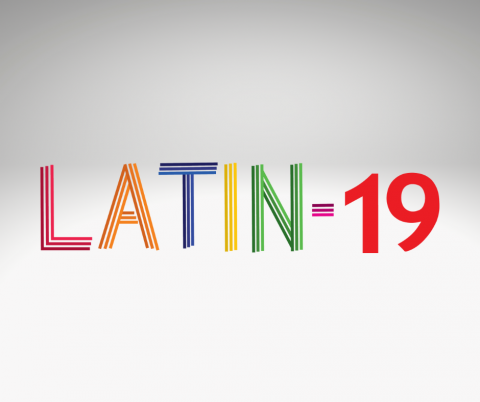Community-Informed Policy to Improve Latinx Health Outcomes in North Carolina (2023-2024)
Background
During the COVID-19 pandemic, Latinx communities across the United States experienced disproportionate risk, morbidity and mortality, as well as significant declines in life expectancy. In North Carolina, early data showed that Latinx communities represented over half of total COVID-19 cases despite comprising only a tenth of the state population.
Many systemic factors contribute to these health disparities. In North Carolina, Latinx essential workers are disproportionately represented in meat packing and food processing industries, which have limited workplace protections or paid sick leave. Further, one in three Latinx people in North Carolina is without health insurance. Those experiencing the greatest marginalization include individuals or families with mixed or no legal status, or with intersectional identities, such as those identifying as Black, Indigenous or part of a sexual or gender minoritized group.
In response to these local inequities, Latina clinicians in Durham created the Latinx Advocacy Team and Interdisciplinary Network for COVID-19 (LATIN-19), a coalition of community, academic, healthcare and policy stakeholders. LATIN-19 aims to bridge the health equity gap in Durham and statewide by linking community engagement principles to policy changes, dismantling processes that prevent Latinx communities from accessing health services.
Project Description
Building on the work of previous teams, this project team aims to identify community-informed policy solutions to increase health equity and improve the responsiveness of the local health system for Latinx communities. Its approach is to integrate community-engaged research and policy analysis, mirroring LATIN-19’s key strategies: elevating community voices to account for community priorities, strengthening meaningful community partnerships and creating care delivery models that reach people where they are.
To that end, team members will work with community-based organizations to understand barriers to access of resources and interventions that have increased community involvement and health system responsiveness.
The project flow is defined by two aims:
- Perform policy analysis to identify and assess local, state or national policies affecting health care utilization in Latinx communities, particularly health insurance enrollment for eligible Latinx populations. Team members will work with community partners and develop a policy brief to present findings to the North Carolina Department of Health and Human Services leaders, as well as a bilingual community brief or presentation to share with LATIN-19.
- Apply methods of community engagement to develop a Latinx Engagement Toolkit for Policymakers. The team will organize focus groups and stakeholder interviews as needed to explore which specific components of LATIN-19 have contributed to community involvement, stakeholder responsiveness and policy change and how to ensure the sustainability of these components. This analysis will help inform the approach of future community-academic coalitions.
Anticipated Outputs
Policy paper; research article submitted to academic journal or Health Affairs Forefront; bilingual community briefs; bilingual LATIN-19 presentations
Student Opportunities
Ideally, this project team will include 2 graduate students and 5-6 undergraduate students. While all students do not need to be bilingual, the team prefers for students to have advanced Spanish-speaking and writing skills (AP Spanish or equivalent). Familiarity with community-engaged research and policy skills are preferred, but not required. Students from multiple majors or fields of study, as well as varying years, are encouraged to apply.
Graduate students will develop experience with project coordination and management, community engagement, policy analysis and leadership to apply to future work. Undergraduate students will learn the processes required to link policy analysis and community engagement. All team members will learn about relationship building to help collect information about potential and existing community partners, coordinating meetings of collaborators and stakeholders, and supporting focus groups with community members. They will also gain experience conducting qualitative data and policy analysis and adapting presentations and briefs for community and policy stakeholders.
The summer components of the program in both 2023 and 2024 will take place through the Duke-Margolis Summer Experience Program (1 student each summer, approximately 40 hours per week for 10 weeks).
A graduate student with applicable experience will be selected as project manager.
Timing
Summer 2023 – Summer 2024
- Summer 2023 (optional): Complete desk review of literature and policies; assess focus group/stakeholder interview qualitative data
- Fall 2023: Conduct additional focus groups/stakeholder interviews
- Spring 2024: Update policy recommendations; prepare a policy brief; create Latinx Engagement Toolkit for Policymakers
- Summer 2024 (optional): Prepare community brief and present to LATIN-19
Crediting
Academic credit available for fall and spring semesters; summer funding available
See earlier related team, Bridging the Health Equity Gap for COVID-19 Vaccine Uptake in Durham (2021-2022).
Image: LATIN-19 logo

Team Leaders
- Gabriela Plasencia, School of Medicine-Family Medicine and Community Health
- Andrea Thoumi, Margolis Center for Health Policy
/undergraduate Team Members
-
Casey Brown, Int Comparative Studies (AB)
-
Nikhil Chaudhry, Neuroscience (BS)
-
Rohan Gupta, Economics (BS)
-
Mya Harris, Neuroscience (AB)
-
Sara Valencia, Neuroscience (AB)
/yfaculty/staff Team Members
-
Rushina Cholera, School of Medicine-Pediatrics: Primary Care Pediatrics
-
Irene Felsman, School of Nursing
-
Rosa Gonzalez-Guarda, School of Nursing
-
Viviana Martinez-Bianchi, School of Medicine-Family Medicine and Community Health
/zcommunity Team Members
-
Immaculate Conception Catholic Church
-
El Centro Hispano, Durham
-
LILA Latinx LGBTQ Initiative
-
Iglesia La Semilla
-
Latino Community Credit Union
